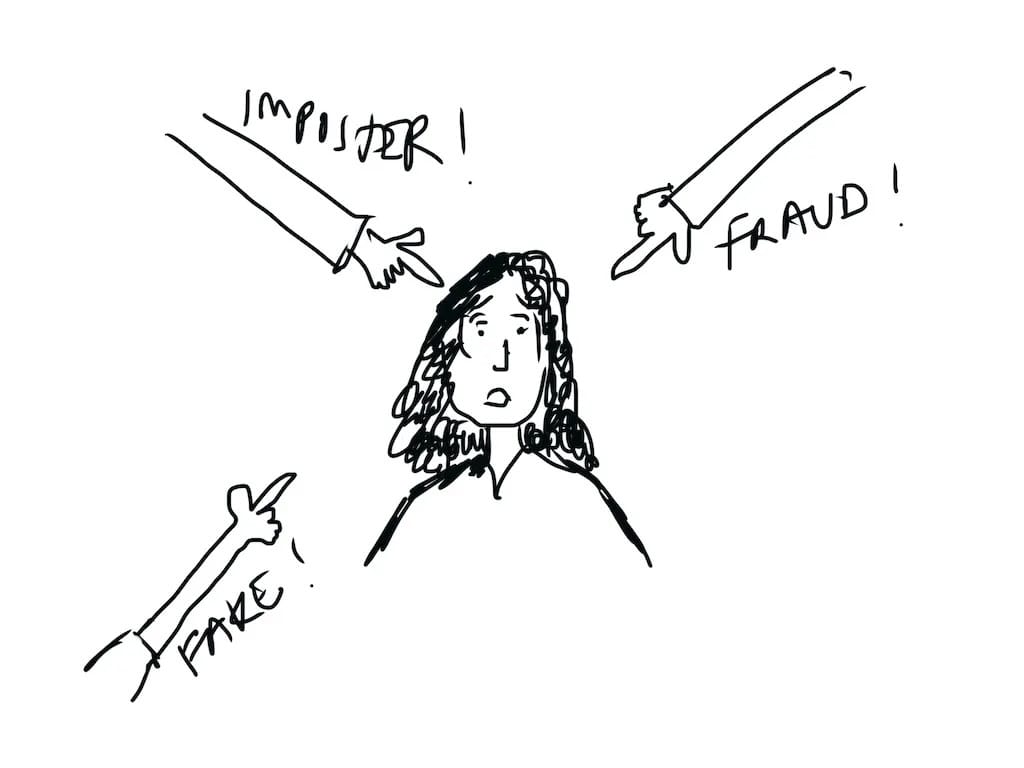You’re reading How to Live—an inquiry into the psychological forces that shape us, and how to stop being run by them.
Through deep research, personal storytelling, and hard-won insight, I challenge the myth of normalcy and offer new ways to face old struggles.
This work is reader-supported. If it speaks to you, consider a paid subscription for deeper insight, off-the-record writing, and seasonal in-person gatherings.
You can also donate any amount.
You're Not an Imposter, The System Is Broken
Do you often worry that someday, everyone will discover you aren't as competent as you seem?
Good news—you’re not alone.
Most likely, you’re a high-achieving human.
You probably know this experience of perpetual doubt and fear of exposure as Imposter Syndrome (IP). However, that’s a misnomer because IP is not a medical syndrome or clinical condition but a universal phenomenon.
To prove just how universal this phenomenon is, studies in 2011 revealed that 70% of the general public felt like impostors. By 2020, that figure had risen to 82%, indicating that nearly the entire population had felt unshakable inadequacy.
Imposter Phenomenon emerged from the research of two psychologists, Pauline Clance and Suzanne Imes. In the fall of 1978, their article, The Imposter Phenomenon in High-Achieving Women: Dynamics and Therapeutic Intervention, was published in Psychotherapy: Theory, Research, and Practice.
They recognized IP as a destructive pattern of discounting hard-earned achievements and attributing them to luck or charm rather than ability. The IP mindset breeds anxiety about being "exposed" as incompetent, spurring unrealistic standards and an intense work ethic, almost as if trying to stave off inevitable failure.
At the end of his life, Albert Einstein confided in a letter to his friend, the philosopher and mathematician, Maurice Solovine, that he felt like a fraud: "The exaggerated esteem in which my lifework is held makes me very ill at ease. I feel compelled to think of myself as an involuntary swindler."

Yes, fellow involuntary swindlers, Albert Einstein also experienced IP.
Imposter Phenomenon often befalls high achievers who, unable to internalize success, underestimate their accomplishments.
Innes and Clance found that repeated success over time does not break the cycle or deliver peace.
Success is not the cure.
Want to know what it is? Read on…
My most profound insights don't go in the free version—they're distilled from my 27 years in therapy, decades of independent study, and work as a mental health advocate. These frameworks and perspectives are reserved for readers committed to going deeper.
Join How to Live
For people who live in their heads, feel more than they show, and want a language for both.
Every Essay, Every Time.What you’ll receive as a subscriber::
- Every new essay, the moment it’s published
- Full access to the complete archive—150+ posts and counting
- Bonus pieces and experiments-in-progress, shared occasionally
- Invitations to seasonal, in-person gatherings
- A direct line to me (annual subscribers): personal replies and tailored recommendations
- 15% off all workshops and live events



